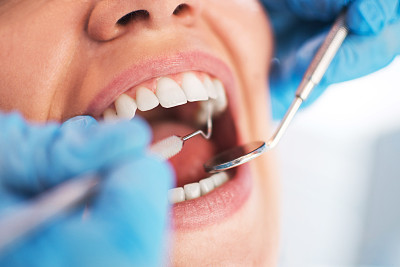Summary: Dental fillings are essential procedures for maintaining oral health, but ensuring optimal outcomes requires careful consideration of safety measures. Before undergoing dental fillings, patients should educate themselves about the procedure, assess their oral health status, choose the right dental professional, and prepare both mentally and physically. This article delves into each of these essential aspects, providing valuable insights for patients looking to achieve the best results from their dental treatments.
1. Educate Yourself About the Procedure

Understanding the dental filling process is a fundamental step for any patient. Being informed about different types of dental fillings, such as composite, amalgam, or ceramic, will help you make an educated choice tailored to your needs. Each type has its own advantages and disadvantages regarding durability, aesthetics, and cost.
In addition to knowing the types, you should familiarize yourself with the procedures involved. This knowledge can alleviate anxiety and help you set expectations. Knowledge of what will happen before, during, and after the procedure, including the anesthetic use and recovery period, provides peace of mind and prepares you for a smooth experience.
Finally, research potential risks and complications associated with dental fillings. Being aware of possible allergic reactions, post-treatment sensitivity, or any issues that could arise can better prepare you for the treating process and enable you to communicate your concerns with your dentist effectively.
2. Assess Your Oral Health Status
Before proceeding with dental fillings, a thorough assessment of your overall oral health is critical. Schedule an appointment with your dentist to evaluate problems such as cavities, gum disease, or existing issues that might complicate the filling procedure. A comprehensive examination, including X-rays, allows the dentist to determine the best course of action.
Moreover, disclosing your complete medical history is essential. Some pre-existing health conditions or medication you’re taking could affect the dental procedure and recovery. Inform your dentist of any allergies or prior dental complications to ensure safety and customize the treatment plan.
Lastly, maintain good oral hygiene before your appointment. Brushing and flossing your teeth diligently can prevent further complications and improve your overall oral health, allowing the dentist to work more effectively and ensuring a better outcome from the filling process.
3. Choose the Right Dental Professional
Selecting a qualified dentist is crucial to achieving optimal results from your dental filling. Investigate the credentials of potential dentists, including their education, experience, and any specialization in restorative dentistry. Checking reviews and testimonials from previous patients can also give you insight into their practice quality.
Moreover, consider the dentists office environment. A clean, organized, and friendly atmosphere can ensure a more comfortable experience. Visiting the dentist beforehand to discuss your concerns and understand their approach can instill confidence in your choice.
Its also beneficial to verify whether the dentist utilizes modern technology and techniques. Facilities that provide advanced diagnostic tools, minimally invasive procedures, and are up to date with industry advances often yield better results. Your safety and comfort should be a priority as you choose the right professional for your dental needs.
4. Prepare Mentally and Physically
Mental preparation is as important as physical preparation when it comes to dental fillings. Anxiety can significantly impact your experience, so consider relaxation techniques such as deep breathing, visualization, or even meditation before your appointment. Establishing a positive mindset can reduce fear and help you feel more in control.
Physically preparing for the procedure is equally essential. Follow any pre-appointment instructions from your dentist, such as fasting if necessary. Make arrangements for transportation to and from the dental office if you anticipate needing anesthesia or sedation, as this can affect your ability to drive.
Lastly, arrange for post-treatment care. Having someone accompany you, whether its a friend or family member, can provide support and help you manage any discomfort after the filling process. Discuss pain management options with your dentist to ensure you are prepared for your recovery.
Summary:
Before undergoing dental filling procedures, its essential to understand the various aspects that contribute to a successful experience. From educating yourself about the filling process, assessing your oral health status, selecting the right dental professional, and preparing mentally and physically, these safety measures can lead to optimal oral health.
Taking these steps not only enhances your dental treatment experience but fosters a sense of empowerment and control over your health. Remember, investing time in preparation is an investment in your smile.
This article is compiled by Vickong Dental and the content is for reference only.
Vickong Dental
Vickong Dental is a large medical group established in Hong Kong in 2008 by professors from well-known medical universities in Guangdong and Hong Kong, as well as medical doctors from key national '985' universities (including Master's supervisors and senior professors). The chain of branches brings together expert dentists with PhDs and Master's degrees from Hong Kong and Mainland China, committed to providing high-quality dental treatment.
"Vickong Dental Practices the University Motto of 'Healing and Serving Society,' with a Stable Operation for Sixteen Years. It Has Been honored with Hong Kong Enterprise Leaders's Choice,' and is a Global Trusted Implant Center for the Nobel Implant System. Recommended by Hong Kong Metro Broadcast and Guangdong Television, it Serves Customers from Over Thirty Countries and Regions, Gaining the Trust and Favor of Citizens from the Guangdong-Hong Kong-Macau Greater Bay Area and Surrounding Cities.

Thousands of customers' unanimous praise
The most recognized and highly recommended dental service by customers in the Guangdong-Hong Kong-Macau Greater Bay Area
We Ensure You Receive Detailed Care and Attention Here
Hong Kong standards, Shenzhen prices, Your Trusted English-speaking dentists

Vickong Dental Medical-Grade Instrument Disinfection Process
Vickong Dental Medical-Grade Instrument Disinfection Process

Vickong Dental Chain: A Warm and Comfortable Environment for Treatment






Appointment Hours

Q&A
Why choose Vickong Dental?
Vickong Dental practices the university motto 「Medicine to Benefit Society」, with each branch bringing together highly qualified dentists with doctoral and master’s degrees from Hong Kong and the Mainland, and has maintained seventeen years of steady operation。Recipient of 「2024 Hong Kong Enterprise Leaders Brand」, 「2025 Hong Kong Enterprise Leaders Brand」, a Nobel Biocare Global Trusted Implant Center, and a brand recommended by Metro Radio Hong Kong and Guangdong TV。
To date, we have served customers from more than thirty countries and regions,earning exceptionally high word-of-mouth recognition and trusted recommendations from residents across the Guangdong-Hong Kong-Macao Greater Bay Area and surrounding cities
We have eight major branches in Zhuhai、Shenzhen,and a consultation and service assurance center in Hong Kong,so you can book a free consultation at any time for any questions,which is very reassuring.
If I do not accept the quotation after the CT scan, will I be charged??
No! As long as the actual treatment has not started, you will not be charged any fees.
Will there be any additional charges during the treatment process?
No, there won’t be any additional charges. Before treatment begins, we will clearly explain the treatment plan and its corresponding fees. Only after the patient agrees and signs the consent form will we proceed with the dental service.
Can I pay in Hong Kong dollars?
Yes. Vickong Dental accepts payment in Hong Kong dollars. The amount will be converted based on the exchange rate of the day, and the applicable rate will be clearly communicated to you in advance.
Can I reschedule my appointment at any time?
Yes. Please contact us via **WeChat** or **WhatsApp** as early as possible, providing your original appointment time and details, along with your preferred new date and time slot for rescheduling.













